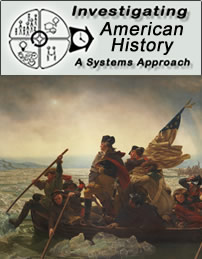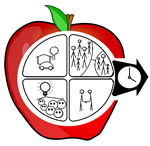Investigating American History: A Systems Approach

Discussions & User Feedback
- General Discussion
- Part 1: Active Learning
- Part 2: Primary Sources and Complex Thought
- Part 3: Organizing Knowledge
- Part 4: Model Category: Setting
- Part 5: Model Category: Demography
- Part 6: Model Category: Patterns of Action
- Part 7: Model Category: Shared Ideas
- Part 8: Identifying Systemic Relationships
- Part 9: System Change: Polarization
- Part 10: System Change: Autonomy
- Part 11: System Change: Complex Causation
- Part 12: How to Build Investigations
- Appendix A: Some Ramifications of Active Learning
- Appendix B: Shared Ideas in American Society
It's FREE to educators for use with their own learners--no strings, no signup, no advertising.
Links to more units in American history
We've added 16 additional free American history units to supplement those in the course material above. Teachers or mentors may use them to augment these or other materials, or to help build a complete history course focusing on primary sources, active learning, and analysis of systemic relationships. Click on the link above for descriptions and download links.
What is it?
Investigating American History is, first of all, a professional book for educators that answers the question, "What's worth learning in American history?"
Our answer will be a bit alien to some history instructors. Most of them love the story of the past, but we think the story is far less important than knowledge about how the systems we call "societies" share patterns of thought and action, how they change, and sometimes fail.
We also point out that the two traditional history learning resources--narrative textbooks and teacher talk--are ineffective. The alternative--active learning--transforms history classrooms. Rich primary sources require processing by learners, developing cognitive skills they must have to succeed in life.
To demonstrate these principles, we've included field-tested materials for learners. Teachers and mentors can best understand these principles and methods by using them. Detailed Specifications
NOTE: Classroom teachers, working together, are better positioned to improve instructional materials than are policymakers and publishers. To facilitate dialogue and continuous refinement, we invite participation in an interactive, supportive, on-line community to discuss learner reactions, suggest improvements to existing activities, and suggest additional or alternative activities.The "Discussions" box in the right column of this page links to pages for this purpose. (Note that all suggested posts are reviewed for appropriate contents before appearing on this website.)
